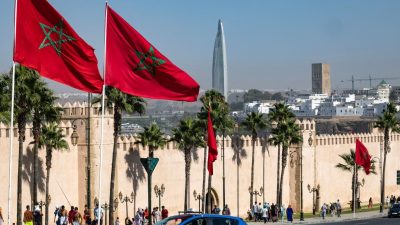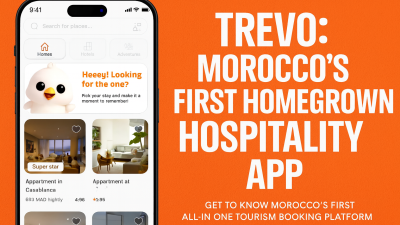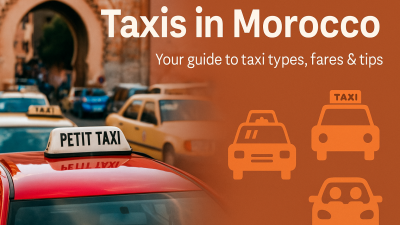If you’re thinking of moving to Morocco or even just visiting for a while, you’re probably wondering: What language do people actually speak here? Well, that’s a great question — and the answer is more layered than you might expect.
Morocco is a country with deep history, strong traditions, and a mix of influences from Amazigh culture, Arab heritage, French colonization, and now a fast-growing English-speaking generation. The result? A nation where multiple languages are not just known, but used daily.
Let’s break it all down in plain language so you know what to expect.
Language Snapshot: Who Speaks What in Morocco
Here’s a quick overview of the four main languages you’ll encounter:
| Language | Role | Where You’ll Hear It |
|---|---|---|
| Arabic | Official state language | Schools, formal documents |
| Darija | Moroccan spoken Arabic | Daily conversations, media |
| French | Administrative, business | Government offices, banks, signage |
| Amazigh | Indigenous Berber languages | Rural areas, Amazigh regions |
| English | Emerging language | Youth, tourism, online platforms |
Now let’s go deeper into each one.
1. Modern Standard Arabic (MSA): The Language of the System
Modern Standard Arabic is the official language of Morocco, and it’s what you’ll find in:
- School curriculums (especially in public education)
- TV news and newspapers
- Government documents and court rulings
But here’s the thing — you won’t hear people casually chatting in MSA on the streets. It’s formal, almost literary Arabic. Most Moroccans understand it, but it’s rarely used outside of structured environments.
So if you’re planning to fill out a visa application, MSA will be there. If you’re buying oranges at the market? Not so much.
2. Darija: The Real Spoken Language in Morocco
Now we’re getting into the real day-to-day language: Darija. It’s the Moroccan Arabic dialect and the true voice of the people.
What makes Darija interesting?
- It’s a blend of Arabic, Amazigh, French, and even Spanish.
- It changes slightly depending on the region (northern Darija sounds a bit different from southern).
- It’s fast, expressive, and often drops vowels and grammar rules.
Here’s a list of helpful Darija phrases:
| English | Darija |
| Hello | Salam |
| How are you? | Labas? |
| I’m fine, thanks | Labas, shukran |
| Thank you | Shukran |
| Yes / No | Ah / La |
| Please | 3afak |
| Sorry / Excuse me | Smeh liya |
| How much is this? | Bshhal hadi? |
| Where is the bus station? | Fin kayna stasyon dyal l-kar? |
| I don’t speak Arabic | Ma-kan-hdrch l’arabia |
| Do you speak English? | Kat-hdr inglizia? |
| I want to buy this | Bghit n-shri hadi |
| Good morning | Sbah l-khir |
| Good night | Tsbah 3la khir |
| What’s your name? | Shno smitk? |
If you’re staying in Morocco long-term, learning Darija will make your life easier — especially in markets, taxis, and daily errands. You don’t need to be fluent. Just knowing the basics shows respect and helps you avoid miscommunication.
3. French: Still Strong and Highly Functional
Even though Morocco gained independence from France in 1956, the French language has remained strong.
You’ll hear French in:
- Banks and financial institutions
- Legal contracts
- Universities and private schools
- Hospitals and clinics
- Many restaurants and stores
People often switch between Darija and French naturally. It’s common to hear half a sentence in one language and half in another.
Some useful French phrases to know:
| English | French |
| I would like a coffee | Je voudrais un café |
| Where is the bathroom? | Où sont les toilettes ? |
| How much is this? | Combien ça coûte ? |
| I don’t speak French | Je ne parle pas français |
Another tip: many government websites and applications are only available in Arabic or French. A basic understanding of French is helpful, especially for bureaucratic stuff.
4. Amazigh (Berber) Languages: Indigenous and Official
Over 30% of Moroccans speak Amazigh, also called Berber languages. They were officially recognized in the 2011 Moroccan constitution, giving them an equal standing with Arabic.
There are three main Amazigh dialects:
- Tachelhit: Common in southern cities like Agadir and Ouarzazate
- Tamazight: Spoken in central Morocco, especially in the Middle Atlas
- Tarifit: Found in the northern Rif region (Al Hoceima, Nador, etc.)
Amazigh languages are taught in schools, used in some media, and seen on road signs — usually alongside Arabic, written in the Tifinagh alphabet.
Here are a few words in Tachelhit:
| English | Tachelhit |
| Welcome | Azul |
| Thank you | Tanmirt |
| Yes / No | Ih / Oho |
In Amazigh-speaking areas, these words go a long way. People appreciate the effort.
5. English in Morocco: Emerging but Not Dominant
English is the new rising star in Morocco, but it’s not dominant yet.
Where it’s spoken:
- Tourist hotspots like Marrakech, Rabat, Casablanca, Tangier
- Hotels, riads, and guided tours
- Among younger people, especially those in university or tech fields
Where it’s less common:
- Traditional neighborhoods
- Rural villages
- Local markets
If you’re relying only on English, you’ll get by in cities — but not everywhere. Many interactions will still need some Darija or French. A translation app can make a big difference.
6. Learning Local Languages: Tools That Help
If you’re serious about adapting to Morocco, consider learning the local languages.
Here’s how you can get started:
- Language centers: American Language Center, Institut Français, Berlitz
- Apps: Duolingo (for French), Memrise or Glossika for Darija, Anki decks
- Local tutors: Found on Facebook groups like “Morocco Language Exchange” or even through expat meetups
A little daily practice goes a long way.
7. Quick Language Map: What to Use and Where
| Situation | Language(s) to Know |
| Renting an apartment | French, Darija |
| Doing paperwork | Arabic, French |
| Talking with locals | Darija (some French or English) |
| Working remotely | English |
| Shopping in souks | Darija |
| Seeing a doctor | French, Arabic |
This gives you a smart idea of what to focus on depending on your lifestyle.
Final Thoughts: Language in Morocco Isn’t a Barrier — It’s a Bridge
You don’t have to master every language to feel at home in Morocco. Just picking up the basics in Darija and knowing a few useful phrases in French will unlock 80% of what you need.
People here are warm and welcoming. They appreciate it when you try to meet them halfway.
So go ahead and download a phrasebook app, practice with locals, or sign up for a few classes. Whether you’re haggling over oranges or registering a residency card, knowing what to say — or at least trying — makes all the difference.
FAQs: Languages in Morocco
Q1: Can I live in Morocco with only English?
In major cities, yes. But for daily life tasks like banking or renting, French or Darija is super helpful.
Q2: Is French mandatory in Morocco?
It’s not mandatory, but it’s very useful. You’ll see it in contracts, doctor’s offices, and even supermarkets.
Q3: What language should I learn first?
Start with Darija. It’s the everyday language spoken everywhere.
Q4: Is Amazigh useful if I’m in a city?
Only if you’re in specific regions like Agadir or Al Hoceima. Otherwise, Darija will be more practical.
Q5: Where can I study Moroccan languages?
Try centers like the American Language Center or use apps like Duolingo and Memrise. You’ll also find tutors and conversation groups in most major cities.
Ready to pack your bags? Morocco’s languages may seem complex at first — but they’re also what makes the country so rich, warm, and worth exploring.


